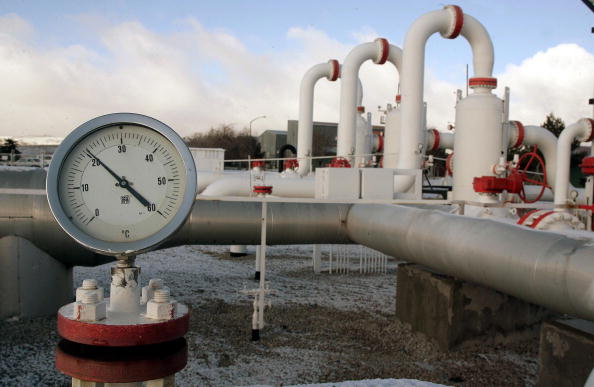Ukraine’s coop with Turkmenistan aims to reduce energy reliance on Russia

By Aynur Jafarova
Turkmen President Gurbanguly Berdymukhamedov has received Ukrainian Deputy Prime Minister Yuriy Boiko, the Turkmen government has said.
Boiko headed a Ukrainian delegation that arrived in Turkmenistan to participate at the meeting of the intergovernmental commission on economic cooperation. It included heads and representatives of Ukrainian state and business entities as well as major industrial companies.
During the discussions it was stressed that Turkmenistan and Ukraine have established a legal framework reflecting the mutual focus on the productive interaction of the two countries' economies.
The priority areas are the fuel and energy sector, trade, metallurgy, transportation, urban planning and agriculture.
Cooperation in the fuel and energy sector will be discussed in detail during an official visit of Ukrainian President Viktor Yanukovych to Ashgabat planned for February.
The main issue discussed during the visit of Ukrainian Foreign Minister Leonid Kozhara to Turkmenistan, which took place in January, was cooperation in the fuel and energy sector.
Experts point out that Ukraine's main interest in Turkmenistan is associated with the country's vast natural gas reserves. Kiev sees Turkmenistan as a competitive energy source. During the visits by Ukrainian officials to Ashgabat it was repeatedly stressed that Ukraine is interested in cooperation with Turkmenistan, especially in the energy sector, as the country aims to reduce its energy dependence from Russia.
Up to 60 percent of the natural gas is imported in Ukraine. Russia is the main gas exporter to Europe and Ukraine, however, there is a problem related to the price of Russian gas.
In early 2006 Russia significantly increased the price of gas exported to Ukraine to bring it in line with market levels. The dispute between Russian gas giant Gazprom and Ukraine over natural gas prices started in March 2005. The two countries were unable to reach an agreement to resolve the dispute and Russia cut gas exports to Ukraine on January 1, 2006.
It is known that the conventional route - Central Asia-Centre (CAC) gas pipeline, which runs through Russia, is below capacity, while the Trans-Caspian gas pipeline, which is to be laid from the Turkmen coast of the Caspian Sea to Azerbaijan, where it will be linked to the Southern Gas Corridor, is still under consideration.
Furthermore, the CAC pipeline has been controlled by Gazprom since the collapse of the USSR. Ukraine bought natural gas directly from Turkmenistan until 2003.In 2003, Gazprom signed an agreement on Turkmen gas imports for 25 years.
Therefore, Ukraine has been looking for a way to get direct deliveries of Turkmen gas. Officials in Kiev previously expressed their desire to directly purchase about 5 billion cubic meters of Turkmen gas annually.
Ashgabat is also interested in new markets, including the early access of its energy resources to Europe. In an attempt to increase gas exports and bypass Russia, Turkmenistan has boosted supplies to Iran, launched a pipeline to China and made progress on the planned TAPI pipeline, designed to run to Pakistan and further to India via Afghanistan.
However, Turkmenistan and Ukraine do not share a border, which means that any gas deliveries would have to pass through Russia. In the past Gazprom refused to allow Turkmen gas to go across Russian territory, in competition with its own sales to Ukraine.
Ukraine needs Russia's permission to use its pipelines for transportation of Turkmen gas to its territory. However, this is not in the interest of Russia, which sells its own and Turkmen gas to European countries, including Ukraine, for a higher price.
In an effort to ensure its own transportation Kiev states that the agreement on the Commonwealth of Independent States (CIS) free trade zone contains a clause envisaging equal access to gas transmission facilities in the CIS countries.
It is obvious that Ukraine will not give up.
"We will work more actively on defining our goals and concrete projects, as well on the ways of implementing them, including the neighboring countries, through which energy resources are transported," Yanukovych said during his visit to Ashgabat in 2011.
Here we are to serve you with news right now. It does not cost much, but worth your attention.
Choose to support open, independent, quality journalism and subscribe on a monthly basis.
By subscribing to our online newspaper, you can have full digital access to all news, analysis, and much more.
You can also follow AzerNEWS on Twitter @AzerNewsAz or Facebook @AzerNewsNewspaper
Thank you!
